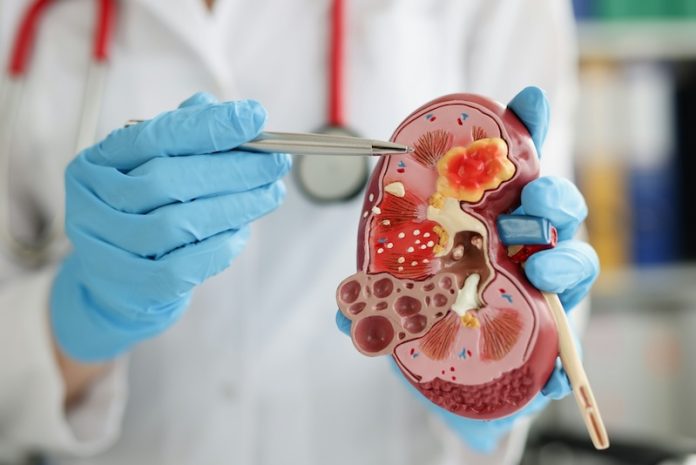
Researchers at the University of Virginia School of Medicine have found that long-term use of some commonly prescribed blood pressure drugs can damage the kidneys and reduce their ability to filter and clean the blood.
This discovery could help doctors better manage high blood pressure and prevent kidney damage.
The drugs in question are called renin-angiotensin system (RAS) inhibitors. These medications relax blood vessels by blocking the effects of a hormone called renin, making it easier for blood to flow. RAS inhibitors are often used as the first treatment for high blood pressure.
While they are effective and generally safe under a doctor’s supervision, the study found that long-term use can lead to scarring and major changes in the kidney’s structure. Instead of focusing on filtering blood, the kidney starts producing too much renin, which can harm the body.
Dr. R. Ariel Gomez, one of the lead researchers, explained that this change turns the kidney into what they call a ‘pathological neuro-immune endocrine organ’—an organ that contributes to disease instead of preventing it. This transformation can lead to serious health issues, including loss of kidney function.
High blood pressure, or hypertension, affects over 1.3 billion people globally. If left untreated, it can cause serious health problems like stroke, heart attack, kidney damage, and vision loss.
RAS inhibitors have been a key tool in controlling blood pressure, but the UVA researchers say we need to take a closer look at how these drugs affect the kidneys over time.
The study showed that constant stimulation of renin-producing cells makes them behave like immature cells. These cells grow too large, secrete too much renin, and produce chemicals that cause more nerves to grow, scar tissue to form, and immune cells to enter the kidney.
This process leads to thickening of tiny blood vessels in the kidney and reduces its ability to filter blood properly.
Dr. Manako Yamaguchi, another researcher, said their advanced 3D imaging clearly showed these harmful changes in the kidney after long-term use of RAS inhibitors. The changes include increased nerve growth, vessel thickening, and inflammation—all of which can harm kidney function.
The researchers believe that understanding these changes could help develop better treatments for high blood pressure that do not damage the kidneys. Their next goal is to study how different types of cells in the kidney interact when RAS is blocked. This could lead to new ways to prevent or reduce the side effects of blood pressure treatment.
If you care about blood pressure, please read studies about unhealthy habits that could increase high blood pressure risk, and eating eggs in a healthy diet may reduce risks of diabetes, high blood pressure.
For more information about blood pressure, please see recent studies that early time-restricted eating could help improve blood pressure, and results showing 12 foods that lower blood pressure.
The study is published in Circulation Research.
Copyright © 2025 Knowridge Science Report. All rights reserved.



